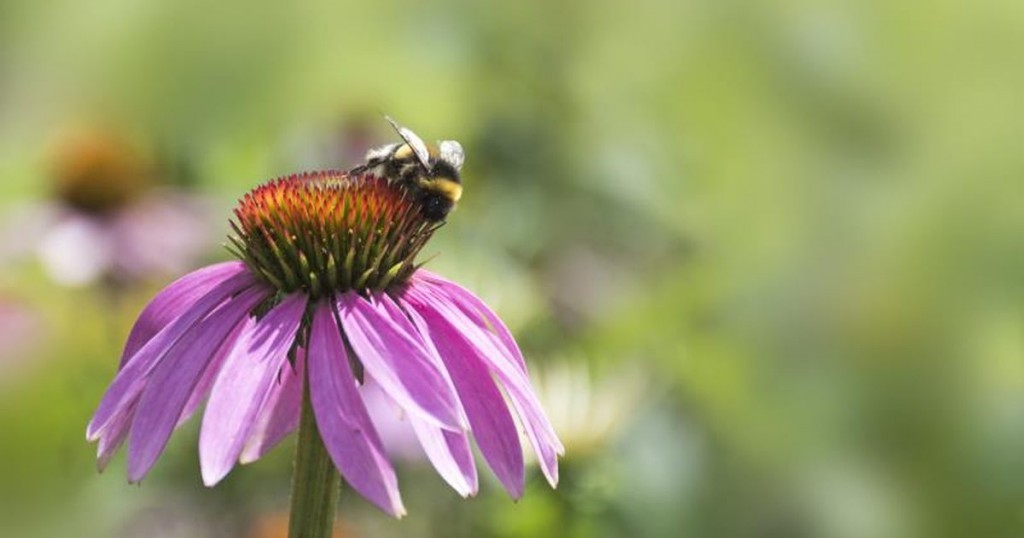
Pneumonia can be called a respiratory disease which involves inflammation of the lungs, mostly caused by bacterial, viral, fungal or parasitical infection and sometimes and sometimes by inhalation of toxic gases, chemicals and unhealthy eating habits. Pneumonia is a serious health issue where body organs and tissues may not get adequate supply of oxygen. It can prove fatal if timely treatment is not given to the patient. Natural home remedies for pneumonia can only provide relief from the symptoms of pneumonia by strengthening immunity and facilitating faster recovery. Proper treatment provided by physician is a must for treating pneumonia. It is essential to emphasize this point so that readers may not rely wholly upon home remedies for pneumonia cure. This disease had been very common in the past and had been known as a fatal disease. Modern medicine has reduced the incidences of deaths related to pneumonia. Pneumonia attacks people with compromised immunity and thus is more visible in older people and children. Home remedies may actually assist these medicines in faster recovery by boosting the immunity of the patient and by giving relief from certain symptoms of pneumonia.
Herbal Remedies for Pneumonia Symptoms
1. Astragalus Herbal Remedy for Pneumonia
Astragalus herb, also called Huang qi, has been used by Traditional Chinese Medicine since ages for balancing and boosting immune system. It is traditionally used to treat people who are prone to infections like cold. Astragalus has anti-inflammatory effect as it inhibits the release of histamines from mast cells. This is why it could be used in pneumonia where lungs get inflamed. However, because astragalus may interact with other drugs and medications, it is advisable to consult with the doctor before giving it to any patient. Astragalus may be otherwise also used daily for boosting immunity. As it is a food like herb, it can be cooked with foods or you can make a decoction from it.
Make Astragalus Decoction
Get this:
- Dried astragalus root (shredded)- 1 cup
- Water- 1 liter
Do this:
- Add astragalus root to water.
- Let the astragalus herb soak overnight.
- In the morning, simmer the water for 30-40 minutes. Don’t boil it, just simmer.
- Take 1-2 tablespoons every day.
Some people use ¼ cup alcohol with it to preserve the decoction and others use cloves and cinnamon for the purpose. If you do not want to use them, make smaller amounts of decoction so that you do not have to preserve them.
Warning: As astragalus interacts with drugs and medicines, consult with your doctor before taking this herb in any form.
2. Echinacea Herbal Remedy for Pneumonia
Echinacea is a a flowering plant native to North America. It is one of the best traditional herbs for cold and flu. It is said that echinacea boosts the immune system and increases resistance to illness. Echinacea, in fact, stimulates phagocytosis, a process wherein certain immune cells engulf and destroy infectious organisms that are foreign to the body. Echinacea also has mild antibacterial properties. Just as you identify the symptoms of pneumonia, start having Echinacea herb. It will be beneficial to support your immunity and reduce mucus production by having Echinacea tea.
Make Echinacea tea for pneumonia
Get this:
- Echinacea herb- 1 tsp
- Lemon grass- ¼ tsp
- Spearmint leaves- ¼ tsp or to taste
- Honey or stevia leaves (optional)- to taste
- Hot water- 1-2 cups
Do this:
- Mix echinacea, lemon grass and spearmint leaves.
- Pour hot water over the mixed herbs.
- Let it steep for about 5 minutes.
- Mix honey or stevia if you want it to be sweet.
- Have this echinacea tea once or twice a day.
Suggestion: Echinacea is not recommended to have daily. You may alternate it with other herbs like astragalus that have quite similar effect as of echinacea. Astragalus can be taken daily. You may have echinacea once in two-three days.
Warning: People allergic to plants of aster family like ragweed may also be allergic to echinacea herb.
3. Mullein Infusion for Pneumonia Remedy
Mullein grows wild in meadows, prairies and along roadsides in North America, Europe and Asia. So, its not at all difficult to find this herb, even in dried form in herbal stores. Mullein has been traditionally used for respiratory diseases for its soothing topical effects which is mainly due to its expectorant properties that helps in loosening phlegm and relieving chest congestion. Many herbalists use mullein for asthma, tuberculosis and pneumonia. Many studies have shown mullein to kill viruses when it comes in contact with them in test tubes. You can make mullein tea by steeping 1-2 tsp of dried leaves and flowers in 1 cup of boiling water for about ten minutes and draining the tea before having it. Inhaling the steam coming out of mullein tea can also relieve you of congestion. However, what benefits the most is mullein infusion.
Make mullein infusion for pneumonia cure
Get this:
- 1 canning jar of 1 liter capacity
- Fresh mullein leaves and stalk pieces (leaves should be cut and crushed)- half of your jar.
OR
- Dried mullein herb- 1 cup
- Boiling water- Enough to fill the jar.
- Milk (optional)- ½ cup
- Honey (optional)- 1-2 tsp
Do this:
- Put the fresh or dried mullein in the jar.
- Pout boiling water over the mullein herb. Fill the jar to its top.
- Stir it properly.
- Cover the jar tightly
- Let the herb sit in the water for at least 4 hours. If possible, let it steep overnight.
- Have 1-4 cups of mullein infusion daily depending upon the severity of your disease. Have this till your condition improves.
- Whatever is left, you can store it in refrigerator. This can stay safe for consumption for 5-6 days if refrigerated.
- You may also add milk and honey with mullein. Add half cup milk to half a cup of mullein infusion. Whole milk, preferably of goat, is very beneficial for the health of your lungs. Contrary to the prevalent belief, milk doesn’t produce mucous.
Warning: Do not use mullein seeds while using mullein herbal remedies. Mullein seeds contain rotenone which may be toxic when consumed for longer periods. Pregnant women, young kids and people suffering from kidney or liver disease avoid taking mullein, at least for longer periods.
4. Elecampane Herbal Remedy for Pneumonia
Elecampane is a plant bearing beautiful sunflower-like flowers. It is one of the best expectorants in herbs. It has quite a strong effect which can be made milder by using it with mullein and licorice. Elecampane can excellently loosen up stubborn chronic coughs and aid in soothing mucus membranes made possible with its inulin and mucilage content. Along with pneumonia, it can provide relief in bronchitis, tuberculosis, chronic chest congestion and cough
Make elecampane herbal decoction for pneumonia
Get this:
- Elecampane bulk herb (dried and cut root)- 1 heaped tsp
- Water- 1 cup
- Honey or stevia- as per taste for sweetening
Do this:
- Add elecampane herb with water.
- Simmer this mixture for 20 minutes.
- Strain.
- Add honey or stevia to sweeten the decoction and have it. You may also use licorice powder to make its bitter taste a little milder.
- Have elecampane decoction as hot as you can thrice a day.
You will feel the effect of this herb only after at least three days. You may have elecampane decoction regularly for 2 weeks. Take a break after two weeks.
Precaution- Pregnant women should consult their doctors before having elecampane herbal preparations.
5. Pleurisy root for Pneumonia Cure
Pleurisy Root is a perennial plan which contains Asclepiadin, resin and a volatile oil. It is a well known plant expectorant used by herbalists for treatment of various inflammatory ailments like pleurisy, pneumonia, cold, flu, bronchitis, pulmonary and respiratory diseases as well as various lung problems. As it can release spasms from respiratory airways, it is traditionally used as a remedy for pneumonia. Pleurisy root tea can be well used for asthma and pneumonia. This herbal tea promotes perspiration meaning when you have this tea, you will sweat and your fever will lower down.
Make pleurisy root tea for pneumonia
Get this:
- Dried pleurisy root herb- 1 tsp
- Hot water- 1 cup
Do this:
- Place the pleurisy root dried crumbles in a pot.
- Pour hot water over it.
- Cover and steep for 15 minutes.
- Strain and have 1 cup of this pleurisy root tea thrice a day.
Warning: Excessive intake of pleurisy root herb can lead to nausea, vomiting, stomach pain and irregular heart beat. People with heart problems should not take pleurisy root. Pregnant women and breast feeding mothers should also avoid having this herb.
6. Fenugreek Seeds for Pneumonia Remedy
The bitter herb, fenugreek seeds have excellent mucolytic properties. Mucolytic agents can dissolve thick mucus in order to help relieve respiratory difficulties. It also promotes perspiration which helps in reducing fever and detoxifying body. There are many ways of making fenugreek tea to give you relief from pneumonia symptoms.
1st way of making fenugreek tea for pneumonia
Get this:
- Fenugreek seeds- 1 tsp
- Water- 2 cups
- Lemon juice (optional) – 1 tsp
Do this:
- Mix fenugreek seeds with water.
- Boil the water for about 5 minutes.
- Strain the tea.
- Add lemon juice if you wish to neutralize the bitter taste of fenugreek a little.
- Have this tea three to four times a day.
2nd way of making fenugreek tea for pneumonia
Get this:
- Fenugreek seeds- 1 tsp
- Ginger powder – 1 tsp OR ginger root- 1 inch piece
- Garlic clove (crushed)- 1
- Cayenne pepper- a pinch
- Hot water- 1 cup
- Lemon juice- from half of a lemon
- Honey (optional)- 1 tsp
Do this:
- Mix fenugreek seeds, ginger, garlic and cayenne pepper with hot water.
- Let it steep for 5 minutes.
- Strain the tea.
- Add lemon juice to this.
- If using, mix honey with this fenugreek tea and have this tea 3-4 times a day.
3rd way of making fenugreek tea for pneumonia
Get this:
- Fenugreek seeds- enough to get 3 tsp of fenugreek powder
- Black tea (hot)- 1 cup
- Honey (optional)- 1-2 tsp
Do this:
- Crush the fenugreek seeds to get 3 tsp fenugreek powder.
- Take the hot black tea and add fenugreek seeds powder to this.
- Mix well and add honey if using.
- Drink this tea once a day.
7. Garlic Remedies for Pneumonia
Garlic has been, beyond doubts, accepted as a super food with superb properties. Garlic is a very effective antimicrobial herb which can efficiently fight bacteria, fungi, viruses and parasites. The allicin compound in garlic makes it a very good anti bacterial and anti viral herb. Garlic boosts your immunity magically. Include garlic in your daily diet and use it extensively in your cooking whether or not you are trying to keep off any disease!
Ways to use garlic for pneumonia
- Eat few raw garlic cloves every day. Chew them, if you can.
- If you can’t eat raw garlic (of course, they smell a lot!), try doing this. Take some garlic cloves, crush them and extract their juice by pressing them. Mix equal quantities of honey and lemon juice with this garlic juice. Have 1-2 tsp three to four times a day. You can store this garlic juice mixture in refrigerator and use it upto 2 days!
- Rub some garlic paste on chest. It will help clear your respiratory tract.
- Take 8-10 garlic cloves and mix it with 8-10 drops of lavender oil. Grind it to make a paste. Rub it on your chest 4-5 times a day.
- Rub some garlic oil on your feet. If you can’t stand it alone, mix it with some olive oil.
- Add garlic to your soups, broths, gravies, sauces and even vegetable juices.
- Place slices of raw garlic over your chest or ribcage. Apply a little oil (any oil, may use olive oil) on the surrounding skin. Now wrap a thin cotton bandage to keep garlic slices in place. Don’t wrap it tightly, just wrap it very loosely. Leave over night.
- Take half of a medium sized onion and 5-6 garlic cloves. Chop them. Add 2 tsp honey to this. Blend it using a cup of water. Have it before eating your first meal of the day. This juice opens up the bronchial passage to keep you relaxed all through the day.
- Inhale steam of water boiled with a few cloves of garlic.
8. Goldenseal for Pneumonia Remedy
Goldenseal herb has excellent antibiotic, anti-inflammatory and astringent properties. It contains berberine which is an antimicrobial plant chemical. Goldenseal soothes the irritated muscles of your throat and when taken after identifying the first symptoms of respiratory problems as well as cold and flu, this herb can prevent further development of the disease. It has also been traditionally used to reduce fever and to give relief from congestion and excess mucous. It also has some immune stimulating effects. However, because goldenseal is an endangered species of plant, you must be careful enough while selecting this herb. Oregon graperoot can also be used in place of goldenseal as it has more or less similar properties.
Make goldenseal tea for pneumonia
Get this:
- Dried goldenseal root herb – 1-2 tsp
- Water- a little more than 1 cup (¼ liter)
Do this:
- Add goldenseal to water.
- Simmer this mixture for ten minutes.
- Strain and have this tea.
- Drink 3-5 cups of goldenseal tea every day.
Warning:
Pregnant women should avoid goldenseal herb because it stimulates contraction of uterus. If you suffer from heart disease, diabetes, glaucoma, high blood pressure or have had a stroke, consult your doctor before taking this herb. Very high doses of goldenseal can sometimes interfere with the metabolism of B vitamins.
9. Coltsfoot Herbal Remedy for Pneumonia
Similar to dandelion in appearance, coltsfoot herb is native to Asia and Europe but has also become a common sight in North America where it can be spotted along roadsides and in open grounds. Because coltsfoot relieves congestion, it is widely used as a herbal remedy for pneumonia along with bronchitis, cough and laryngitis. This may also be reason for its other name, coughwort! Small does of coltsfoot are enough to open the bronchial passages. Large doses, in fact, will close down these bronchial passages. It also contain mucilages that coat the throat relieving of irritation therein. Traditionally, coltsfoot is used as a cough remedy which soothes throat, eases inflammation and calms spasms in lungs.
Make coltsfoot tea for pneumonia
Get this:
• Dried flowers or leaves of coltsfoot- 1 tsp
• Boiling water- 1 cup
Do this:
• Place coltsfoot herb in a pot.
• Pour boiling water over it.
• Let steep for 10 minutes.
• Strain and have this tea.
• You may have 2-4 cups of this tea daily.
• However, in a year, you should not take coltsfoot tea for more than four weeks.
Warning:
Don’t give coltsfoot herb to children. Use only that coltsfoot product which is ‘certified pyrrolizidine-free.’ Pyrrolizidine alkaloids in wild coltsfoot can induce liver cancer even if taken in very small amounts. It is advisable not to use tinctures made of wild coltsfoot as tinctures contain 10 times the concentration of alkoloids than teas made with the same amount of the herb. Coltsfoot tinctures can also aggravate high blood pressure.
10. Eucalyptus and Tea Tree Oil Remedies for Pneumonia
Most of the essential oils have antibiotic properties and they can best be used through inhaling their steam. Steam inhalation using essential oils take the beneficial components’ effects deep into the lungs and help get relief from congestion. There are two essential oils that are particularly good for pneumonia. These are eucalyptus oil and tea tree oil. While eucalyptus oil helps relieve congestion and also aid you in coughing up the mucus, tea tree oil fights off microbes. Another way of using these essential oils is to directly rub them onto your chest. You may also apply heat pack. Lets see how to apply all these ways to use essential oils for pneumonia.
1st way of using eucalyptus and tea tree oil for pneumonia: Steam inhalation
Get this:
- Eucalyptus or tea tree oil- few drops
- Hot water (just hot to to steam; be careful not to take that hot water which can burn you)
- A bowl, preferably heat resistant
- A towel
Do this:
- Take hot water in the bowl.
- Pour few drops of eucalyptus oil or tea tree oil.
- Take the towel and put it over your head.
- Hold your face about thirty centimeters away from the steam coming out of the bowl.
- Inhale deeply with both, your nose and mouth.
- Keep on inhaling steam till the time you stop getting any fragrance of the oil.
- Repeat this steam inhalation procedure thrice a day.
2nd way of using eucalyptus and tea tree oil for pneumonia: Chest rub
Get this:
- Eucalyptus or tea tree essential oil- 20 drops
- A carrier oil (olive, almond, castor or any other neutral oil)- 1 tbsp
Do this:
- Dilute the essential oil by mixing it with the vegetable oil of your choice and rub this onto your chest.
- If you need more oil for your chest rub, increase the quantity of both the oils, essential and carrier oil, but maintain the proportion 20 drops for each tablespoon of carrier oil.
3rd way of using eucalyptus and tea tree oil for pneumonia: Heat pack
Get this:
- Eucalyptus or tea tree oil- 10-20 drops
- Wool flannel or a thick piece of cotton cloth
- Vegetable oil of your choice (olive, almond, castor or any other neutral oil)- enough to moisten the cloth
- A piece of plastic
- Hot water bottle (optional)
Do this:
- Take the wool flannel or piece of cotton cloth.
- Moisten it with the vegetable oil.
- Set the oven at low temperature and warm the cloth.
- Now pour drops of essential oil, eucalyptus or tea tree oil, onto the warm cloth.
- Gently rub the cloth so that the oil is distributed evenly onto the whole cloth.
- Lie down and apply this heat pack to your chest. Ensure, it is not too hot, just comfortably warm.
- To protect your bed, you can use a plastic sheet over the pack.
- If you wish, you may even top it with a hot water bottle.
- Leave the heat pack in this position for about half an hour.
- Do this 2-3 times a day.
11. Homemade Herbal Expectorant Cough Syrup for Pneumonia
Make this expectorant cough syrup at home with some herbs that will help promote drainage of mucus from your lungs giving you relief from pneumonia symptoms.
- Water- 120 ml
- Honey- 120 ml
- Dried mullein leaves- 1-2 tsp
- Dried horehound herb- 1-2 tsp
- Dried rosemary leaves- 1-2 tsp
- Cinnamon powder (or chopped cinnamon bark)- 1-2 tsp
- Dried chopped ginger- 1-2 tsp
- Cayenne- a pinch
- A saucepan
Do this:
- Combine all the ingredients in the saucepan.
- Now bring this herbal mixture to boil.
- When it starts boiling, lower the flame and simmer it uncovered.
- Simmer the mixture till it remains half of its original quantity.
- Put off the flame and strain the syrup.
- Let it cool down to room temperature.
- Take half to 1 tsp of this expectorant cough syrup every two hours.
- Store the left over syrup in refrigerator.
You can add any other herb to this cough syrup which is useful in relieving pneumonia symptoms. Just check you are not allergic to it.
Home remedies for pneumonia cannot be used in place of medicines. Apply any home remedy for pneumonia along with the medicines prescribed by your doctor for fast recovery from pneumonia symptoms.
Source: RapidHomeRemedies
 We are sharing information for knowledge. Presented by. SocialDiary.Net
We are sharing information for knowledge. Presented by. SocialDiary.Net



